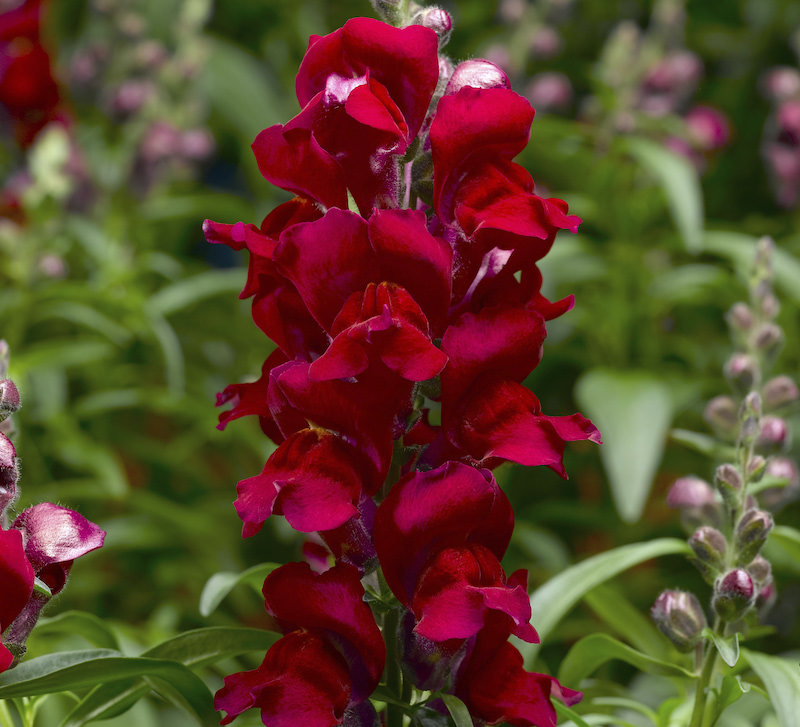Snapdragon flowers are not as dangerous as their name implies. No part of the plant is poisonous to humans or animals. In fact, snapdragon flowers are edible! Snapdragons join the list of many beautiful edible flowers.
Are Snapdragons Poisonous to Children?
Snapdragons are not poisonous to children at any age. It is fun and completely harmless for children (and adults) to play with snapdragon flowers, pinching their sides open and closed as if they were talking. While the flowers are edible and non-toxic, children should not be encouraged to readily consume snapdragons as ingesting the plant in large quantities could cause an upset stomach. In addition, heavy grazing could damage your plant.

Are Snapdragons Poisonous to Dogs?
Snapdragons are not poisonous to dogs or puppies. Dogs do not typically bother with snapdragons in the garden or in containers. If a dog happens to excessively chew or eat snapdragons, vomiting can occur but there should be no cause for concern.
Are Snapdragons Poisonous to Cats?
Snapdragons are not poisonous to cats or small kittens. Cats do not typically bother with the plant in the garden or in containers. If a cat happens to excessively chew or eat snapdragons, vomiting can occur but there should be no cause for concern.
Are Snapdragons Poisonous to Other Animals?
Snapdragons are not poisonous to other animals including horses, pigs, chickens, etc. Snapdragons are safe to be planted around all animals. They are non-toxic and safe but they also have a particularly bitter flavor, and animals and pests such as rabbits and deer do not typically bother them.

Symptoms of Snapdragon Poisoning
Snapdragons are non-toxic and will not poison humans or animals. If a human or animal consumes large amounts of snapdragons, they may have an upset stomach or experience vomiting. Always check with your doctor or veterinarian for guidance if you suspect any type of poisoning.
Preventing Snapdragon Poisoning
Snapdragons are non-toxic and you therefore not a threat to humans or animals. Chemical fertilizers or pesticides applied to the plant can be toxic though. If you apply chemicals to your plants, you should be careful to keep children and pets away from your garden by using physical barriers or fences. Physical barriers can also be used to protect your garden from damage or trampling by pets and children.
Pet Poison Helpline
If something were to happen to your furry friend, and you suspect that they are suffering from snapdragon poisoning, there is a poison control hotline to call for 24/7 vet advice. It is called the Pet Poison Hotline, and their phone number is (855) 764-7661.
Click here for a complete list of Pet Safe Plants.
Sources:
"Antirrhinum majus." The North Carolina Extension Gardener Plant Toolbox. plants.ces.ncsu.edu
"Common Snapdragon." American Society for the Prevention of Cruelty to Animals. aspca.org
 |
Author Katie Endicott - Published 7-05-2022 |


